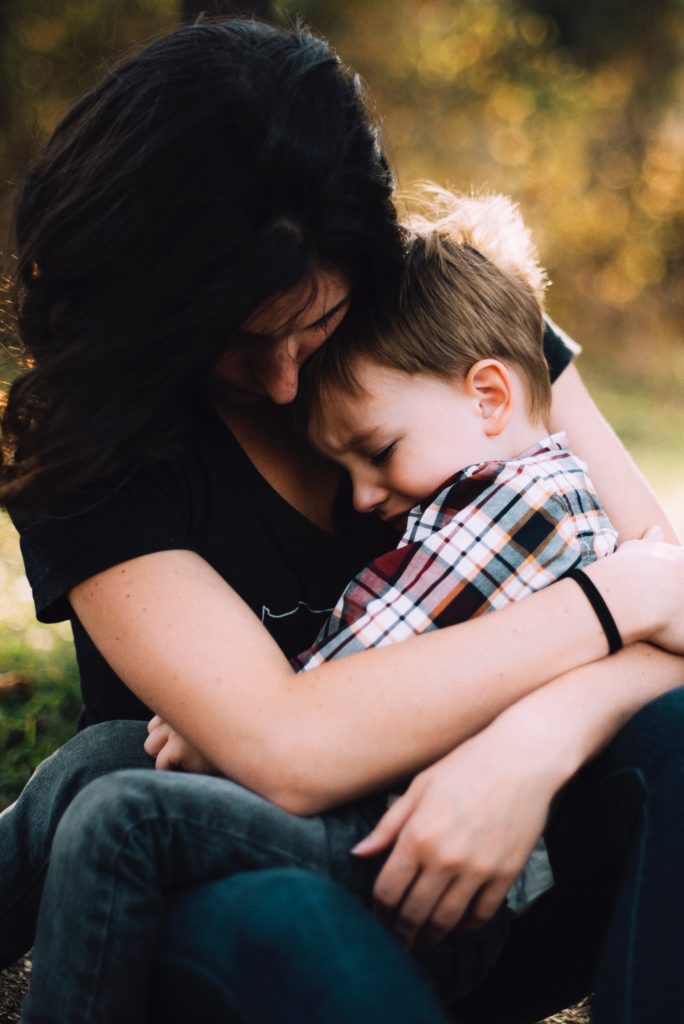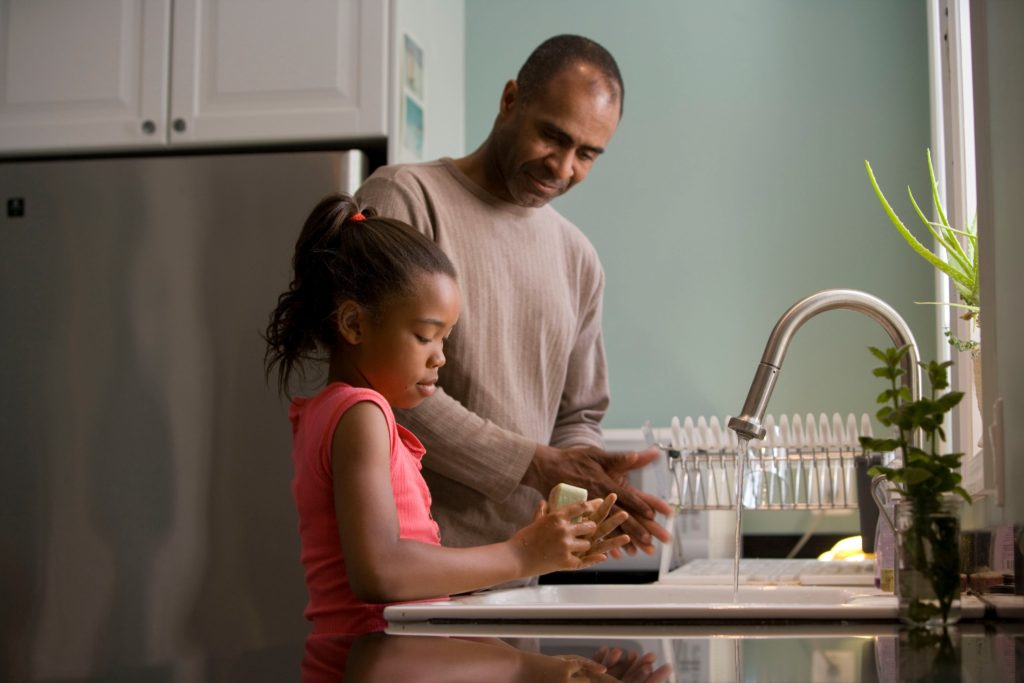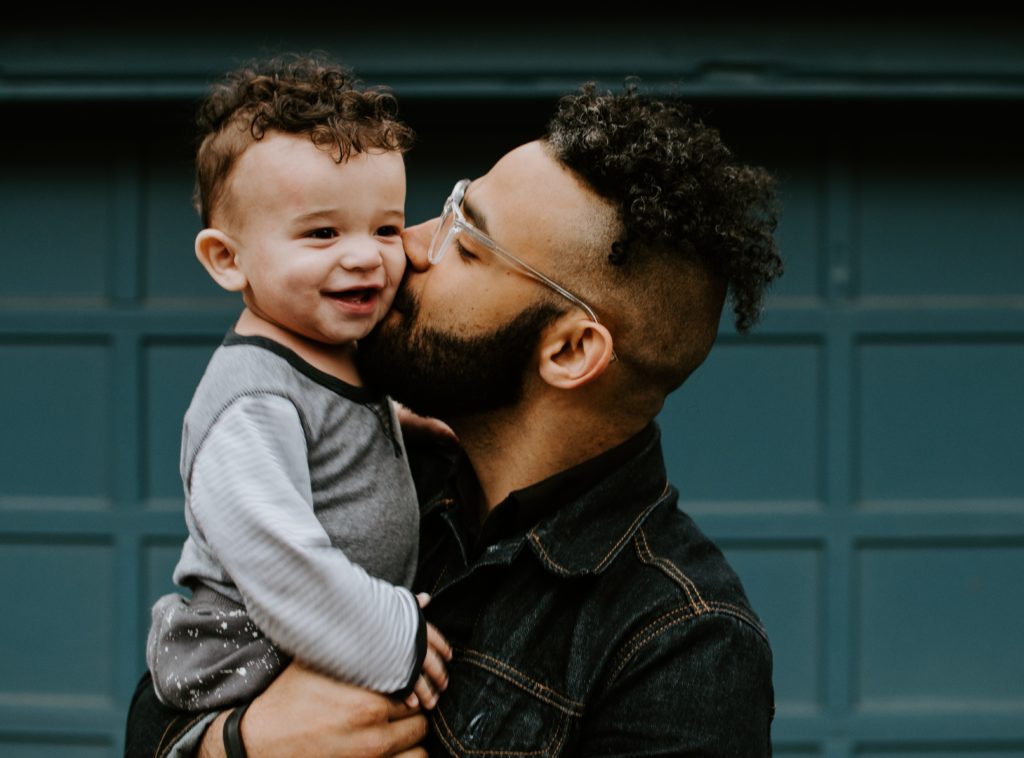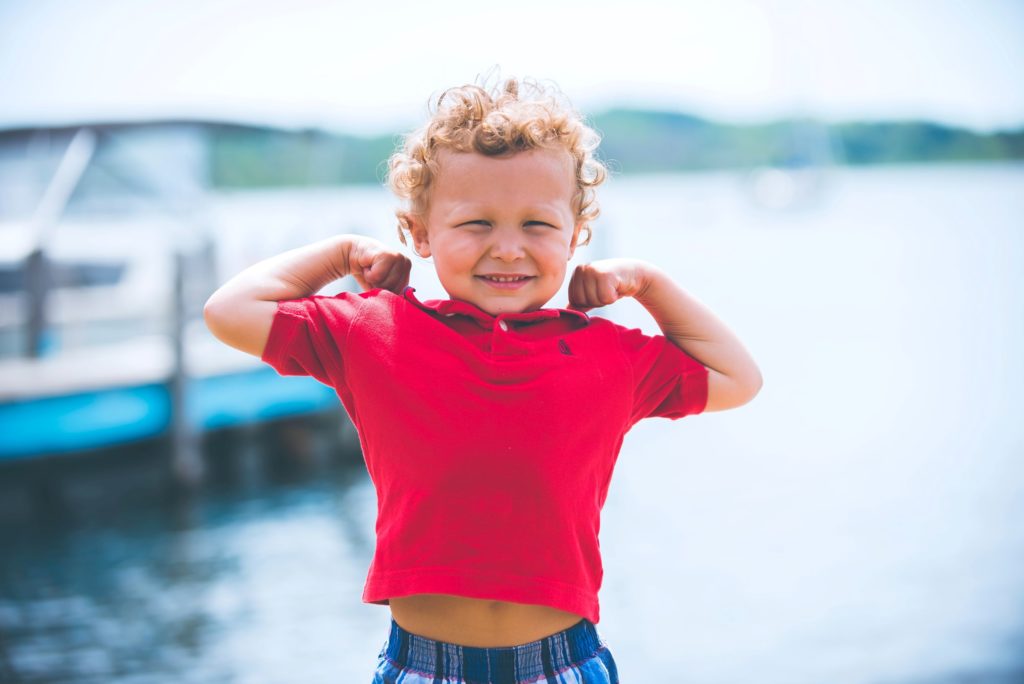We’ve never encountered a time like this. We’ve never lived in a world where schools have been closed indefinitely, where children can’t play at playgrounds or with friends, where all trips are canceled, where grocery store shelves are empty, and where people are walking around wearing masks.
Sure, we may have experienced school closure for a snow day or empty store shelves due to a natural disaster. We may have seen a few people wearing masks in public when they’ve been sick. But we’ve never experienced all of this together — and never for such an extend period of time.
If your children are struggling, it makes sense.
If you’re struggling, it makes sense.
And while you can’t control what’s happening out there in the world, there’s a whole lot you can control in your home environment. If your children are anxious or worried, follow these suggestions to ease your child’s anxiety during this pandemic.
Share Correct, Age-Appropriate Information
When children don’t understand what’s going on, their brains fill in the blanks with their own misinformation. To avoid your child coming up with worrisome ideas about the pandemic, have clear, age-appropriate conversations about the facts.
For preschoolers, you can keep this brief. Too many details may cause more concern than assurance. Be sure to address their concerns with simple facts.
Don’t tell them it’s no big deal, or they don’t need to worry about it. This only feeds their worry and causes them to create their own imaginative explanation in their mind.
Monitor Incoming Information
Be mindful of what your child is being exposed to on TV, in your conversations on Zoom, and on your social media feed when they’re peeking over your shoulder.
It’s your job to be your child’s filter right now. Don’t let them be exposed to too much negative information about the pandemic and its effects on the world. Repeated cycles of Coronavirus news is overwhelming for children.
Manage Your Own Anxiety
It’s perfectly understandable if your own anxiety levels are skyrocketing. But leaving your anxieties untended is not only bad for your own mental health, it will affect your children too.
Manage your anxiety by speaking with a therapist, using coping techniques, practicing mindfulness and gratitude, and more.
Remove anxiety language from your speech. Words like panic, fear, crisis, death, and more don’t need to feature into your daily language. Instead, you can use words like precautions, help, safety, and protection.
Be sure not to muse aloud about your own fears to your child.
Focus on the Giving Part of the Pandemic
Staying at home is a safe measure your child can take to protect vulnerable people in our country. Remind them they are doing a good thing for others by staying home from preschool, skipping visits with Grandma, and avoiding playgrounds.
At the same time, don’t shame them if they feel real loss. Acknowledge this is hard, and remind them this is a temporary thing.
Find the Positive
While this is a hard time, it’s not all bad. And more than anyone, children can see the positive of quarantine. Now, there might be more time to be together as a family. There might be more time to play in the backyard. They might improve a skill, like bike-riding or rollerskating.
Be sure to speak about the things you’re grateful for during this time; the special opportunities you’re getting at home.
Follow a Structure
Have you ever marveled at how a preschool teacher can keep a dozen or more children on task together? Structure is one key element in keeping children focused and moving forward without push back.
When your child knows what to expect throughout the day, they can mentally prepare themselves for the next step. They can also move from some tasks on autopilot on their own, reducing the space and time for fights.
Try and do basic things in the same order each day — morning routines involving making the bed, brushing teeth, getting dressed, etc. are a helpful place to start.
Post your routine somewhere your child can see and reference. Use pictures or symbols to help them easily grasp the steps.
And remember that it’s okay to be flexible when you need to be.
Spend Quality Time Together
Being at home together does not automatically translate into quality time together. Make it a point to spend connected, quality time together — reading a story, playing a game, going for a walk, exercising together, etc. If you need to schedule it into your day to make sure it happens, go for it!
You don’t have to make every minute of the day a minute of quality time. Just make sure you’re spending some real time together on a regular basis.
Practice Mindfulness
There’s never been a better time to learn some new mindfulness techniques! Give yourself and your children the gift of slowing down and boosting your emotional health.
Trust Your Child to Do What They Can Do
Keep encouraging your child to develop new skills and responsibilities. If your child can do something themselves, let them.
They can clean up after themselves before moving onto a new activity. They can press start on the microwave when you make popcorn. They can fold laundry or put it in their drawers.
Let your child do what they can do. Being responsible will help them feel more secure during this time.
{How to Teach Your Preschooler Responsibility}
Be Compassionate
When you or your child melts down (because it will happen!), be compassionate. This is hard, and we all deserve a hug and second (or third or fourth…) chances.
Compassion will not only help your child feel safe and loved, it will improve your own emotional well-being too.
Hang in there! You’re doing good work, parents!
To learn more about UDA Creative Arts Preschool in Draper, Utah, contact us online or give us a call at (801) 523-5930.




